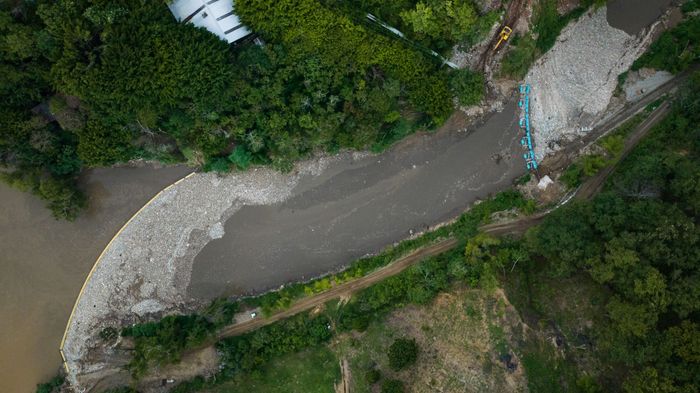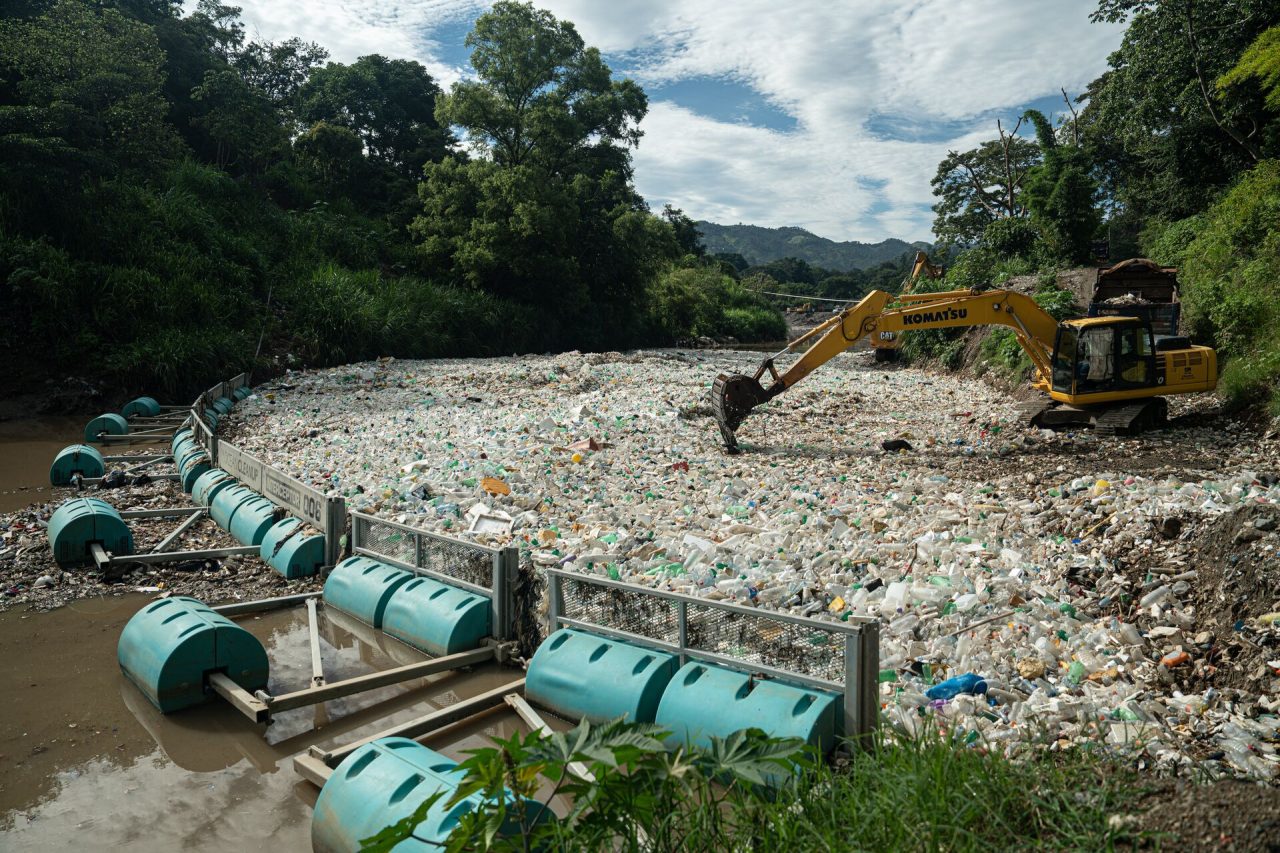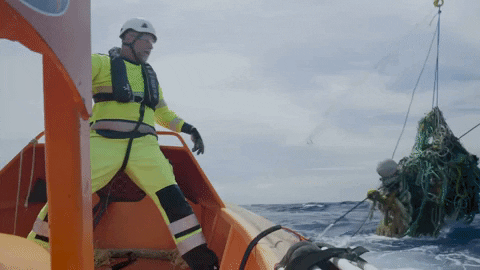
Interceptor Barricade Makes Promising Start in Guatemala ahead of First Seasonal Heavy Floods
Back to press-
Interceptor 006, the new Interceptor Barricade, shows early promise following deployment in Rio Las Vacas, Guatemala.
-
Estimated 856,973 kg of trash removed and prevented from polluting the Caribbean Sea during installation and first trials; still awaiting anticipated ‘trash tsunami’ conditions to fully validate solution.
-
Strong initial performance provides hope of ending annual trash floods into the Gulf of Honduras each year.
-
Contributes to restoration and improvement of environment throughout Guatemala and to The Ocean Cleanup’s global mission of ridding the oceans of plastic.
Guatemala City, JUNE 14, 2023 — The Ocean Cleanup, the international non-profit project with the mission of ridding the oceans of plastic, has confirmed that its new Interceptor Barricade is now operational and capturing plastic in the Rio Las Vacas, Guatemala. As of June 13, an estimated 856, 973 kg of trash (equivalent to 256 truckloads) has been extracted from the river by The Ocean Cleanup since the end of April.
The Interceptor Barricade, known as Interceptor 006, has been deployed in the Rio Las Vacas as The Ocean Cleanup’s solution to the annual tsunamis of trash that flow from there into the Rio Motagua – and finally into the Caribbean Sea. Interceptor 006 marks The Ocean Cleanup’s 11th Interceptor deployment in rivers around the world.
As rainfall in Guatemala has been less than typical since deployment, the two-boom Interceptor Barricade has not yet faced extreme floods like those seen in 2022. The Ocean Cleanup is continuing to optimize the system in anticipation of these heavy seasonal rains and the first opportunity to test the system against the trash tsunamis flooding down this river each year.
“We are delighted with the positive start Interceptor 006 has made, with around 250 truckloads of trash already prevented from reaching the Caribbean Sea, said Boyan Slat, founder and CEO of The Ocean Cleanup. “Now we await the real test: a heavy flood and a trash tsunami bringing hundreds of tons of plastic in just a few hours – in the hope that we can fully validate our solution and end these yearly floods of plastic into the Caribbean Sea.’’
Interceptor 006 is deployed and operated in close collaboration with the Municipality of Guatemala City and Guatemala’s national Ministry of the Environment (MARN) as part of the authorities’ wider plan of action to address environmental concerns in the region. It is hoped that Interceptor 006 will be the first of multiple deployments across Guatemala as part of a local and national commitment to reducing plastic pollution in rivers and preventing it from ever reaching the oceans.
The Interceptor Barricade is a customized system of two heavy-duty floating booms anchored in moorings (set in 144 cubic meters of concrete) to the riverbank. The booms are positioned at a slight angle towards the incoming currents, and the system is designed to capture maximum plastic while withstanding the pressures of extreme flooding events. As thousands of tons of waste are washed down the river during floods, the Interceptor Barricade captures floating trash while allowing the force of the water to flow underneath. The captured plastic is extracted by excavators and sorted and managed by our local partners.
###
DOWNLOADS
A dedicated media gallery for this release is available here.
Photos, illustrations, and videos on The Ocean Cleanup can be found in the general media gallery.
ABOUT THE OCEAN CLEANUP
The Ocean Cleanup is an international non-profit organization that develops and scales technologies to rid the world’s oceans of plastic. They aim to achieve this goal through a dual strategy: intercepting in rivers to stop the inflow and cleaning up what has already accumulated in the ocean. For the latter, The Ocean Cleanup develops and deploys large-scale systems to efficiently concentrate the plastic for periodic removal. This plastic is tracked and traced through DNV’s chain of custody model to certify claims of origin when recycling it into new products. To curb the tide via rivers, The Ocean Cleanup has developed Interceptor™ Solutions to halt and extract riverine plastic before it reaches the ocean. Founded in 2013 by Boyan Slat, The Ocean Cleanup now employs a broadly multi-disciplined team of approximately 140. The foundation is headquartered in Rotterdam, the Netherlands, and opened its first regional office in Kuala Lumpur, Malaysia, in 2023.
PRESS CONTACTS
CFF Communications, Amsterdam
Niels Broekhof
press@theoceancleanup.com
+31 (0)6 30 37 49 30
U.S. Media Representative, San Francisco
Alan Dunton
adunton@shiftcomm.com
+1 415-290-8219
For more information: visit theoceancleanup.com, and follow @theoceancleanup on social media.

